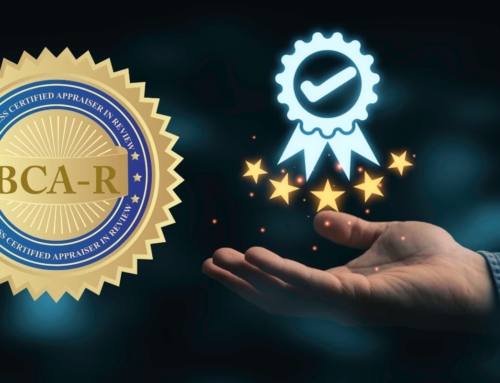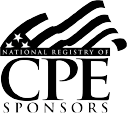Why These Rules Matter
On December 26, 2024, the IRS released proposed regulations that could redefine the landscape of professional appraisal practices. Many experts, including ISBA Director Howard Lewis, consider these changes to be “the most consequential IRS action since 1959.”
The proposed rules aim to address long-standing gaps in accountability and elevate the standards for appraisers across the board. By bringing appraisers under the jurisdiction of Circular 230, the IRS is setting a precedent for ethical and professional responsibility akin to those governing attorneys and accountants. This pivotal moment signals a new era of scrutiny and professionalism within the appraisal industry.
Overview of the Proposed IRS Rules for Appraisers
At the close of 2024, the IRS proposed regulations to hold appraisers accountable to higher professional standards. These changes mark a monumental update to IRS oversight, comparable to the landmark Revenue Ruling 59-60 from 1959.
Key Changes Include:
- Appraisers are now subject to Circular 230’s professional responsibility standards, ensuring accountability for ethical and competent practices.
- The penalty prerequisite for disqualification has been removed, allowing the IRS to take direct action against misconduct.
- Adherence to appraisal standards such as Uniform Standards of Professional Appraisal Practice (USPAP) and International Valuation Standards (IVS) is now mandatory.
- The Office of Professional Responsibility (OPR) will oversee investigations into appraiser misconduct as part of the new IRS Rules for Appraisers. However, as Howard Lewis noted during the webinar, this role is currently fraught with uncertainty. The OPR does not have appraisers on staff, raising questions about their ability to effectively evaluate appraisal-specific issues. Howard speculated that OPR may need to hire appraisers or consult external experts to fulfill this responsibility. He emphasized the “gray” nature of this oversight, cautioning appraisers to stay vigilant as the implementation evolves.
Participant Insights: Awareness Gaps and the Need for Education
At ISBA’s January webinar, where the proposed regulation was discussed, a significant number of participants revealed that they were previously unaware of these proposed regulations. This highlights a pressing need for education and outreach to appraisers across the industry.
One participant shared, “A number of years ago, an Ohio lawmaker tried to get Business Brokers registered.’ It never happened. Governments and agencies, including the IRS, are often not good at regulating professionals. I appreciate you and ISBA and what you do.”
Webinars like ISBA’s play a crucial role in bridging these knowledge gaps. By staying informed and engaged, appraisers can ensure their practices align with the new standards. Continuous learning and professional development are no longer optional—they are essential for success.
The Importance of Well-Written Appraisal Reports
Howard Lewis emphasized the critical role of well-written appraisal reports in this new regulatory landscape.
Best Practices for Appraisers:
- Include a dedicated section in appraisal reports explicitly addressing compliance with USPAP or IVS.
- Position this section as an attachment or exhibit for clarity and accountability.
Why does this matter? Adherence to these standards not only demonstrates professional credibility but also serves as a defense against allegations of willful or reckless misconduct.
ISBA’s Guidance on IRS Rules for Appraisers
To address the impact of these regulations, ISBA has announced an upcoming “Guidance Alert” to assist members in updating their practices. This alert emphasizes:
- The necessity of maintaining detailed documentation that demonstrates adherence to USPAP and IVS.
- Recommendations for incorporating a compliance section into appraisal reports to align with the proposed regulations.
- Continuous updates to ensure members remain ahead of the curve as the regulations evolve.
Howard Lewis remarked during the webinar, “Competent appraisers should have little to worry about, but these guidelines provide a clear framework for navigating this new landscape successfully.” ISBA’s proactive approach ensures appraisers are equipped to meet these heightened standards while fostering professionalism and credibility across the field.
The Value of ISBA’s BCA-R Program
Now more than ever, ISBA’s Business Certified Appraiser in Review (BCA-R) program underscores its value in preparing professionals to meet the demands of the new IRS Rules for Appraisers.
What Makes BCA-R Unique?
- A comprehensive five-day curriculum covering foundational principles, market-based methods, peer reviews, and certification exams.
- Practical insights shared by industry veterans, including Howard Lewis.
- Online format with small class sizes for personalized learning.
Participants from previous cohorts have praised the program as transformative. Jim Lisi, a participant, shared, “This program differentiates you in the profession with practical and real-world insights.” Other attendees highlighted the invaluable knowledge and engagement offered by instructors.
The next cohort begins on February 17, 2025, and enrollment is now open. Space is limited, so early registration is highly encouraged.
Embracing Change for a Stronger Profession
The webinar underscored the necessity of adapting to these regulatory changes to ensure professional success. As Howard Lewis noted, “Competent appraisers should have little to worry about,” but those failing to meet standards risk serious consequences.
ISBA’s leadership in guiding the appraisal industry through education, certification, and advocacy is more critical than ever. Leverage ISBA’s resources—from webinars to the BCA-R program—to thrive in this evolving regulatory environment.










